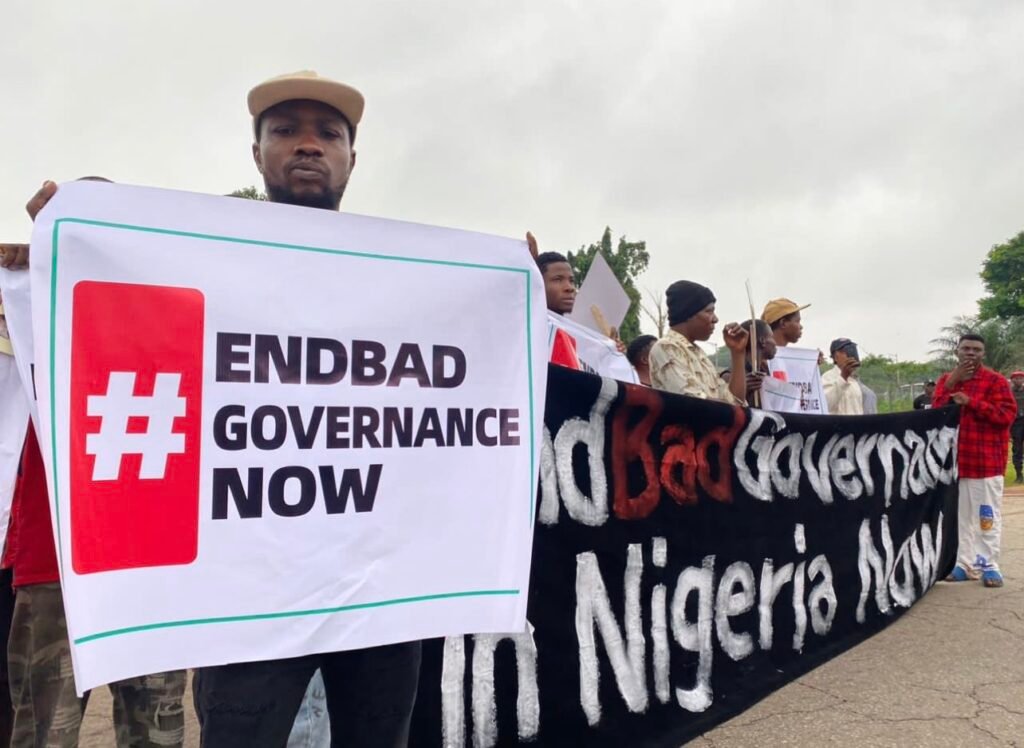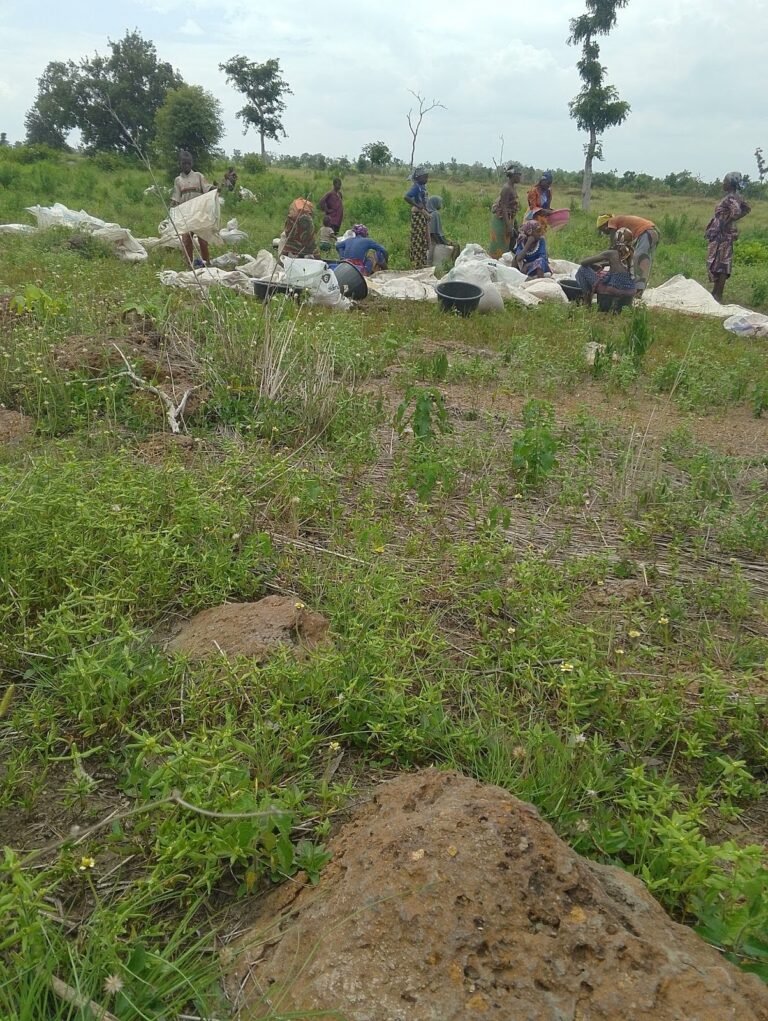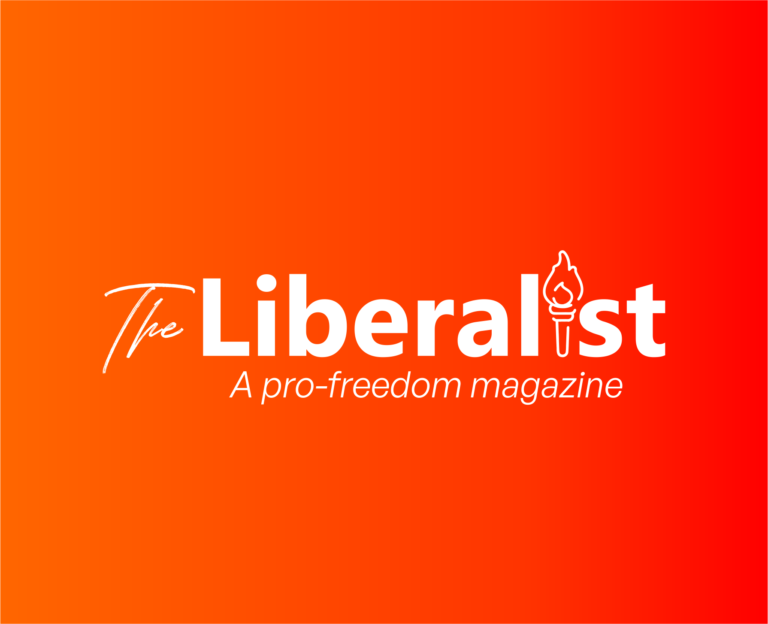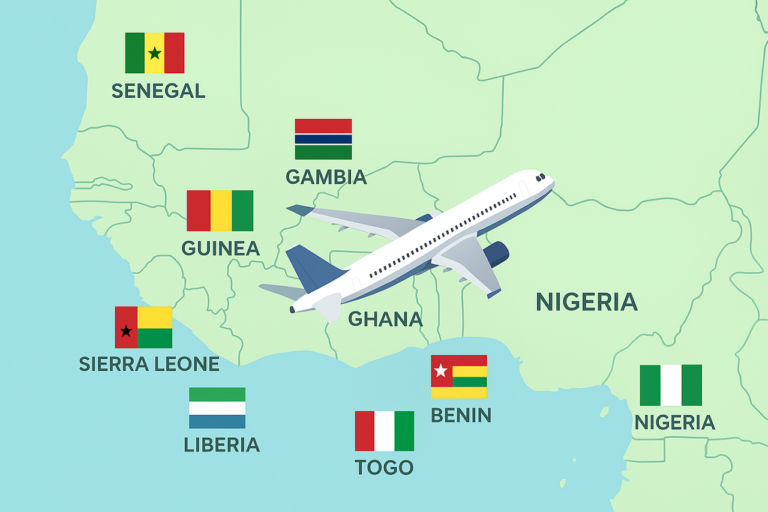In the early hours of Thursday, August 1, 2024, demonstrators stormed the streets of major Nigerian cities to commence a ten-day nationwide demonstration tagged #EndBadGovernace protest. Propelled by nationwide inflation and high cost of living, protesters listed up to 12 demands the federal government must fulfil.
During the protest in Abuja, Mandela Olalekan, a broadcast journalist with NSTI TV, witnessed policemen shooting teargas at the protesters, kicking the demonstrators with their boots and beating some others “mercilessly and roughly. It was chaotic at the Moshood Abiola National Stadium,” he said.
Away from the Mahmood stadium, the protest developed into a glimpse of chaos as police forced protesters to disperse in Kubwa, Abuja. Media reports the police killed a protester in the process.
Protesters in Lagos state almost experienced a second nightmare barely five years after the memorial #EndSars protest. On July 31, 2024, the eve of the protest, the Nigeria police reportedly discovered an active explosive device in the Lekki toll gate area. Many believed this would discourage residents from engaging in the protest. But that was not the case.
According to a report by Tribune, policemen fired teargas canisters at protesters who converged at the Lekki Toll Gate on Thursday.
In Kano, protesters rallying under the ‘End Hunger’ banner stormed a yet-to-be-commisioned building owned by the National Communications Commission. What started as a demand for change quickly descended into chaos as they looted office equipment and set the building ablaze. The police, under the necessity to use force, arrested 157 individuals on charges of vandalism. The situation was just as dire in Katsina, where hoodlums, under the pretence of protest, attacked the residence of former President Buhari in his hometown of Daura.
The violence escalated in Jigawa, where protesters set the All Progressives Congress headquarters on fire and looted a nearby store. And in Yobe, protesters torched seven buses, prompting authorities to impose an immediate curfew.
So far the human and material cost of these protests is unimaginable. In Kaduna, Kano, Niger and Borno, at least seven protesters lost their lives to gunfire. Borno, in particular, endured a grim day as terrorists fed on the situation when a suicide bomber detonated a bomb in the state, killing 16 people. The horror of the situation led to a swift imposition of a 24-hour curfew, a desperate attempt to restore order and prevent further tragedy.
Before the protest, the Nigerian government assured the citizens of a hassle-free environment, emphasising that the “power of protests” restored democracy in Nigeria. Therefore, “citizens’ rights to peaceful protest should be safeguarded.”
However, the efforts of protesters to maintain a peaceful assembly were met with aggressive restraints from security agents across the nation. Deji Adeyanju, a Nigerian lawyer and protester accused the Inspector General of Police of pushing for the harsh confrontations protesters encountered with policemen across the country on the first day.
Before the protesters finally retired on Thursday, demonstrators in Nigeria’s major cities of Abuja, Kano, Niger, Borno, Kaduna, and Katsina among others, experienced police brutality and suffered fatal casualties, with no fewer than 17 people killed on the first day of the protest.














